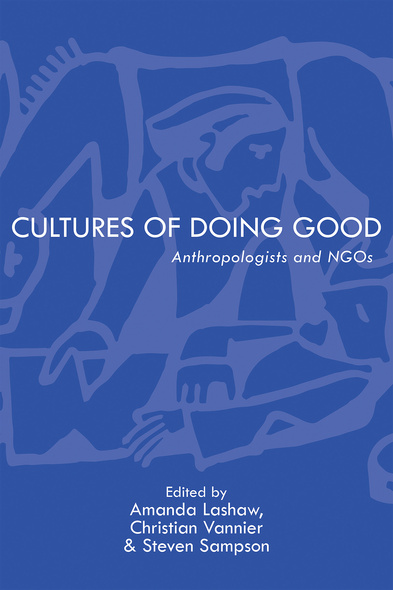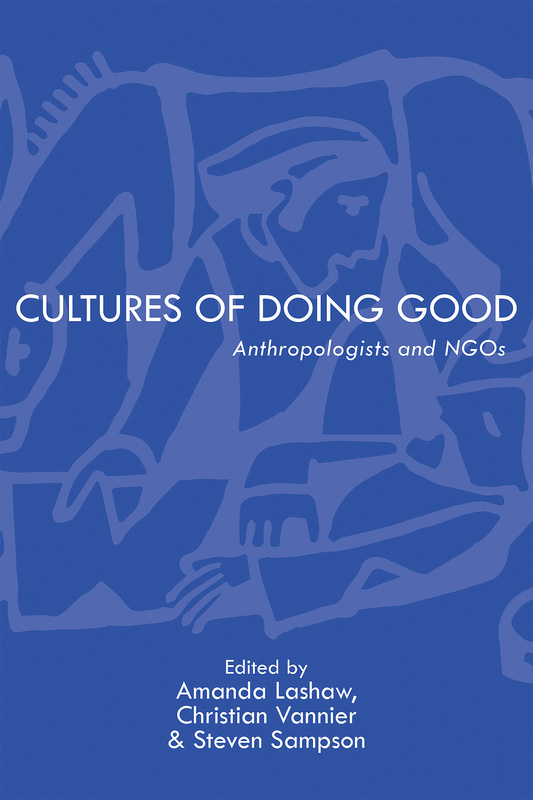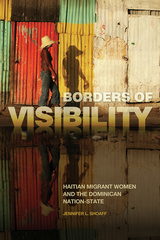Cultures of Doing Good
Anthropologists and NGOs
Cultures of Doing Good: Anthropologists and NGOs serves as a foundational text to advance a growing subfield of social science inquiry: the anthropology of nongovernmental organizations (NGOs). Thorough introductory chapters provide a short history of NGO anthropology, address how the study of NGOs contributes to anthropology more broadly, and examine ways that anthropological studies of NGOs expand research agendas spawned by other disciplines. In addition, the theoretical concepts and debates that have anchored the analysis of NGOs since they entered scholarly discourse after World War II are explained.
The wide-ranging volume is organized into thematic parts: “Changing Landscapes of Power,” “Doing Good Work,” and “Methodological Challenges of NGO Anthropology.” Each part is introduced by an original, reflective essay that contextualizes and links the themes of each chapter to broader bodies of research and to theoretical and methodological debates. A concluding chapter synthesizes how current lines of inquiry consolidate and advance the first generation of anthropological NGO studies, highlighting new and promising directions in this field.
In contrast to studies about surveys of NGOs that cover a single issue or region, this book offers a survey of NGO dynamics in varied cultural and political settings. The chapters herein cover NGO life in Tanzania, Serbia, the Czech Republic, Egypt, Peru, the United States, and India. The diverse institutional worlds and networks include feminist activism, international aid donors, USAID democracy experts, Romani housing activism, academic gender studies, volunteer tourism, Jewish philanthropy, Islamic faith-based development, child welfare, women’s legal arbitration, and environmental conservation.
The collection explores issues such as normative democratic civic engagement, elitism and professionalization, the governance of feminist advocacy, disciplining religion, the politics of philanthropic neutrality, NGO tourism and consumption, blurred boundaries between anthropologists as researchers and activists, and barriers to producing critical NGO ethnographies.
Cultures of Doing Good aims to find a place for the anthropology of NGOs and, thus, to do justice to transforming global situations. It declares the anthropology of NGOs to be an academic field of its own. [ . . . ] With these perspectives and insights the book is highly recommended for researchers of different regional focuses and disciplines, like political science or religious studies—but also for activists and practitioners.'
—Anthropos
'This valuable collection of 'second generation' studies of anthropological encounters with NGOs focuses on 'doing NGO' rather than reiterating previous emphases on the connections between NGOs, neoliberal ideology, and development policy. Case studies include examples of environmental conservation in Bangladesh and Tanzania; women’s activism in Tanzania, the Czech Republic, and India; community empowerment in Serbia and Egypt; Romani housing in the Czech Republic; voluntourism and children’s welfare in Peru; and Jewish philanthropy and reconstruction in New Orleans. While agreeing with Dorothea Hilhorst that 'NGO' is 'a slippery concept that resists categorization and homogenization,' the book also demonstrates the necessity for the study of NGOs for understanding contemporary international social and economic processes on the ground. Recommended.'
—CHOICE
‘Cultures of Doing Good marks a new era of NGO scholarship, one that goes beyond shock at the NGO boom in the wake of neoliberal state retrenchments. Using the contributors’ vast and diverse experiences, it tells complex stories of humanitarianism in the twenty-first century and the challenges facing scholars trying to navigate this important sector with engagement and rigor.’
—Heather Hindman, author of Mediating the Global: Expatria’s Forms and Consequences in Kathmandu and coeditor of Inside the Everyday Lives of Development Workers: The Challenges and Futures of Aidland
This book is well written and easy to read. It is valuable for scholars in different fields, practitioners, researchers and students of social sciences. It will provide them with case studies that will help them better understand the roles and issues faced by NGOs and people working in the field. It can be used a foundation for the study of NGOs from an anthropological point of view and can add value to classroom discussion to show the opportunities and constraints that NGOs face when interacting with their environment.’
—Voluntas
‘Cultures of Doing Good makes substantial contributions to anthropological works on development, humanitarianism and civil society, interdisciplinary literature on NGOs, and—given that the NGO phenomenon touches so many of us—to the discipline of anthropology as a whole.’
—Julie Hemment, author of Youth Politics in Putin’s Russia: Producing Patriots and Entrepreneurs and Empowering Women in Russia: Activism, Aid, and NGOs
Christian Vannier is a lecturer in the departments of anthropology and Africana studies at the University of Michigan, Flint.
Steven Sampson is professor emeritus of social anthropology at Lund University in Sweden.
Introduction: Engagements and Entanglements in the Anthropology of NGOs by Steven Sampson
Part I. Changing Landscapes of Power
Introduction to Part I: Dilemmas of Dual Roles, Studying NGOs, and Donor-Driven “Democracy” by Mark Schuller
Chapter 1. Anthropologists’ Encounters with NGOs: Critique, Collaboration, and Conflict by David Lewis
Chapter 2. NGO Fever and Donor Regimes: Tanzanian Feminist Activism within Landscapes of Contradictions by Victoria Bernal
Chapter 3. Habits of the Heart: Grassroots “Revitalization” and State Transformation in Serbia by Theodora Vetta
Chapter 4. Reformists and Revolutionists: Social Work NGOs and Activist Struggles in the Czech Republic by Hana Synková
Chapter 5. Leveraging Supranational Civil Society: Critiquing Czech Gender Equality Policy through Academic-NGO Collaboration by Karen Kapusta-Pofahl
Part II. Doing Good Work
Introduction to Part II: Life in NGOs by Inderpal Grewal
Chapter 6. Faith Development beyond Religion: The NGO as Site of Islamic Reform by Nermeen Mouftah
Chapter 7. Interdependent Industries and Ethical Dilemmas: NGOs and Volunteer Tourism in Cusco, Peru byAviva Sinervo
Chapter 8. Rebuilding Justice: Jewish Philanthropy and the Politics of Representation in Post-Katrina New Orleans by Moshe Kornfeld
Part III: Methodological Challenges of NGO Anthropology Introduction to Part III: How to Study NGOs Ethically by Erica Bornstein
Chapter 9. The Ethics and Politics of NGO-Dependent Anthropology by Katherine Lemons
Chapter 10. The Anthropologist and the Conservation NGO: Dilemmas of and Opportunities for Engagement by Amanda Woomer
Conclusion: A Second Generation of NGO Anthropology by Christian Vannier and Amanda Lashaw
References Cited
Contributors
Index






